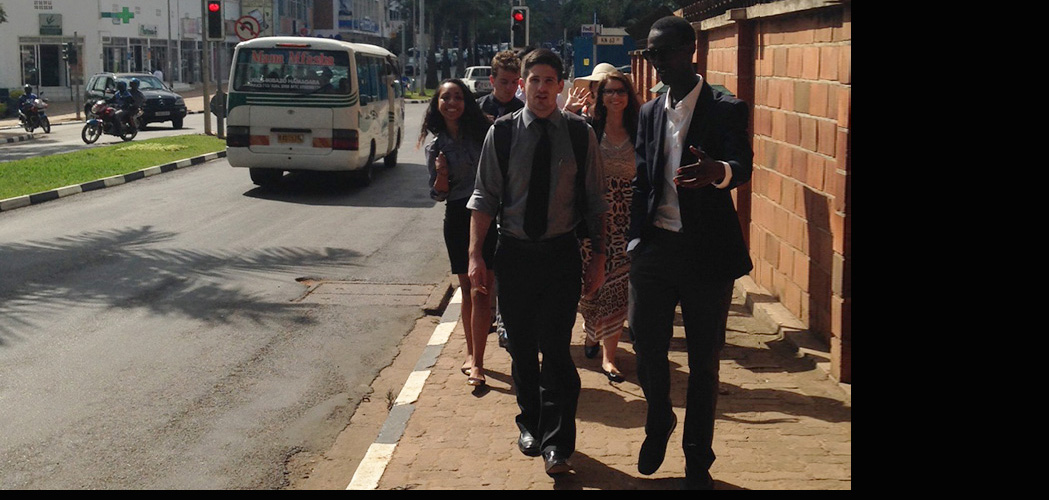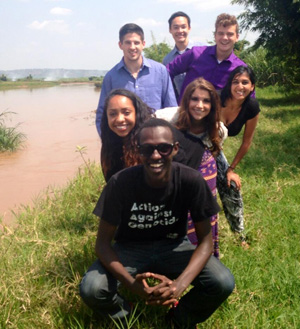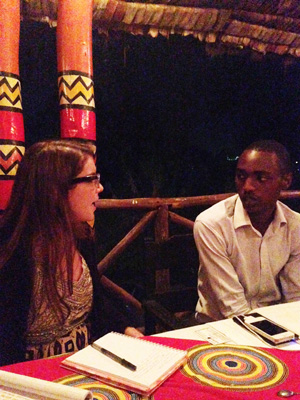Problems Without Passports Kicks Off in Kigali, Rwanda

 Yannick Tona, front, with the Problems Without Passports class at the Nyabarongo River
Yannick Tona, front, with the Problems Without Passports class at the Nyabarongo RiverThe summer course, “Remembering Rwanda: Memory, Testimony, and Living Together,” studies the history, genocide, aftermath and creation of modern day Rwanda, immersing students in the complexities of socio-political reconstruction after genocide. The 2014 course is led by Amy M. Carnes, Ph.D., USC Shoah Foundation associate director of education – evaluation and scholarship, and Emily Musil Church, Ph.D., professor of history at Lafayette College. This is the second year that USC Shoah Foundation has led a Problems Without Passports course in Rwanda.
 Christina Schoellkopf, left, and a member of AERG
Christina Schoellkopf, left, and a member of AERGOn Monday, the class visited the Kigali Genocide Memorial and met with Honore Gatera, head of Kigali Genocide Memorial. The goal of the day was to learn the perspective of the primary memorial center in Rwanda and its role for various audiences.
The students’ day on Tuesday was dedicated to meeting leaders in the field of post genocide rebuilding education. First, they met members of AVEGA Agohozo, the Association of the Widows of Rwanda, followed by IBUKA, a lobby group that addresses justice for survivors and coordinates national survivor projects. In the evening the class met with representatives of AERG, a student survivor association.
The group visited the Nyamata and Ntarama memorial sites on Wednesday and met with Clare Akamanzi, COO of the Rwanda Development Board, which aims to advance business, investment and innovation in Rwanda.
In the next few days, the class will spend a night at Lake Kivu, meet poet and politician Edouard Bamporiki at Rwandan Parliament and conduct interviews with genocide survivors at Kigali Genocide Memorial.